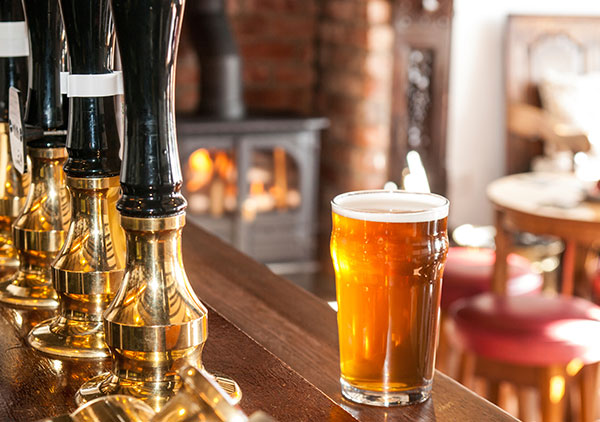
Put your knowledge of all things cask ale to the test in this week’s Tuesday Beer Trivia quiz.
Simply put, cask ale is beer that undergoes secondary fermentation to achieve carbonation and is served at cellar temperatures. In some areas of the world, there are strict ideologies pertaining to what can and cannot be “real” cask ale, while others—particularly home- and craft brewers—are pushing the traditions of cask ale into new (delicious) frontiers.
After you take the Beer Trivia quiz below, scroll down to the “Beer Trivia Answer Explanations” section to learn more about cask ale.
Beer Trivia Answer Explanations
Click To Expand
Question 1: A stillage is a wooden rack used to hold a cask in place and elevate it from the ground.
Question 2: The British-based group Campaign for Real Ale (CAMRA) uses the term “cask ale” or “real ale” to specifically refer to traditional British beer styles (bitters, stouts, pale ales, etc.) that are served at cellar temperatures (52–57° F or 11–14° C) and a low level of carbonation (less than 1 volume, or 2 grams per liter, of CO2).
Question 3: “Dropping bright” refers to the settling of yeast and proteins to the bottom of the cask, leaving the beer clear. This is accomplished by adding finings to the beer that can help clear it up.
Question 4: The beer engine is the most common way to serve cask conditioned beer, which is a hand-operated hydraulic pump that draws beer from the cask, which is typically stored in a cellar, and up to the bar.
Question 5: CAMRA stands for Campaign for Real Ale, which is a UK-based consumer organization that promotes cask-conditioned “real ale” and the traditional British pub. The organization was founded in 1971 in response to the poor quality and blandness of British beer at the time. Originally called the Campaign for the Revitalisation of Ale, it adopted the name Campaign for Real Ale in 1973. Its goals are to protect and improve consumer rights; promote quality, choice, and value for money; support the pub as a focus of community life; and campaign for the greater appreciation of traditional beers, ciders, and perries.



Share Post